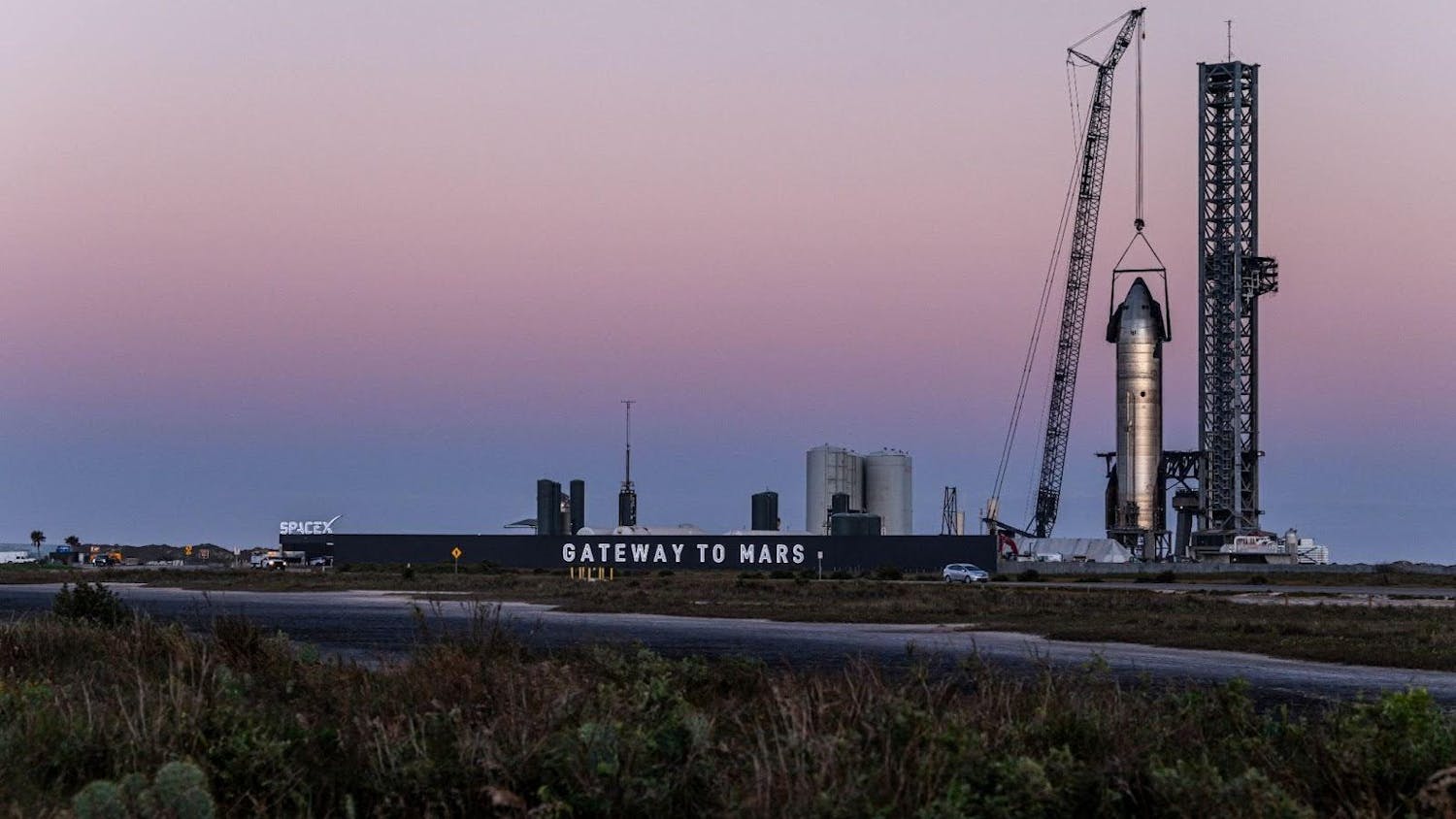As we speak, college students worldwide pull out their shotskis and ice luge molds in celebration of the most riveting quadrennial exercise in patriotism, team spirit, and demolition of self-worth—the Winter Olympics.
This year’s games are being held in Pyeongchang, South Korea, a city of 40,000, of which only 35.6% were interested in the Winter Olympics, according to a survey taken last April by the South Korean Ministry of Culture, Sports and Tourism. While the Games have proceeded swimmingly and the drone light show/technical precision/flagbearers (I’m looking at you, Tongan flag man) of the opening ceremony were spectacular, the potential $13 billion price tag for this year’s Olympics has raised some questions, particularly as Rio, host of the 2016 Summer Olympics, still faces $40 million in debt. Between Rio and Montreal, which took 30 years to pay off debt from its 1976 Olympic Games, a valid question can be raised: why do countries even want to host the Olympics? And when they do, how does it work out for them economically?
For the inaugural Olympic games in Athens 1896, Baron De Coubertin, founder of the Olympic revival, budgeted 250,000 drachmas; the final cost, around $10 million in today’s dollars, was six times that. 108 years later the 2004 Athens Olympics clocked in at around $11 billion.
Prior to the First World War, the Olympics were decidedly second-string to the World Fairs and Imperial Exhibitions in Paris, London, and St. Louis. It was the controversial 1936 Berlin Olympics that pushed the Games into the big leagues. For the first time, the Olympics were definitively aligned with a political ideology and employed by the state to assert itself on a global scale. For the Games, Berlin built the first-ever Olympic park along with a 100,000-seat stadium, invented the torch relay, and spent approximately $1.7 billion in today’s terms. Since then, countries have used the Olympics to attain a symbolic international standing and prestige: Mexico used the Games to ascend to the ranks of industrialized economies, while Tokyo took advantage of hosting the Olympics to implement a huge urban development program and demonstrate its technological advancement.
However, as costs have been buffeted by the increasing role of the Olympics as a marker of global status and power, a question emerges: do the costs of hosting the Olympics outweigh the benefits?
In order to justify the jaw-dropping amounts of taxpayer money spent in preparation for the Olympics, host country officials oftentimes cite increased tourist spending during the Games, improvements in infrastructure, and more robust tourism/foreign investment/trade long after the Games end. Short-term tourist spending aside, much of the economic rationalization for the Olympics hinges upon a trickle-down mentality that posits that the future benefits of hosting the Olympics will eventually pay off the short-term costs (or if not, debt that can be passed onto the next officeholder can).
Examining the bidding process illuminates how costs for hosting the Olympics have entered record-breaking territory. Even submitting a bid for the Olympics can cost millions of dollars in planning, marketing, and architectural renderings. Because the International Olympic Committee (IOC) has a track record of favoring cities that make the most extravagant offers for infrastructure improvements, there is oftentimes a “winner’s curse” effect—the cities that overvalue the benefits of hosting the Olympics and thereby overbid win.
After the host city has signed on to hosting the Olympics, spending begins on transportation and airport improvements, increasing accommodation capacity (the Summer Olympics require a minimum of 40,000 hotel rooms on top of housing for 15,000 athletes and officials), and building specialized athletic facilities (e.g. an Olympic-sized pool, an Olympic track, an ice rink, etc.). Estimates put the infrastructure costs for the Olympics at between $5 and $15 billion over what the city would spend normally. 
Ironically, while hosting the Olympics does increase trade, countries that made losing bids for the Olympics also see increased trade and spend tens of millions rather than billions of dollars; positive impact for the countries comes from the signal that they are ready for business, not from actually hosting the games. Voters are catching on; cities in liberal democracies are having a tough time garnering popular support for hosting the Olympic games (e.g. Boston and Hamburg both were unable to secure popular support for hosting in 2024, and the final cities in contention for the 2022 Winter Olympics bid were in two different autocratic regimes after four European cities dropped out). A Dutch government-commissioned report from 2012 predicted that only non-democratic countries will be willing to host events in the future, which could lead to a disproportionate impact on the host country, as historically Olympics hosted by countries with less accountable governments have ended up being major outliers in cost.
Furthermore, spending on the Olympics consistently overshoots what is budgeted, generally by between four to ten times. The burden is placed on the shoulders of taxpayers, not large corporations, who probably don’t see Olympic stadiums as a particularly profitable venture. The cost of maintenance after the Games end, which can tally to millions of dollars per year for a larger structure, results in stadiums populated by squatters and overgrown fields. Whereas cities such as London and Los Angeles can make a decent profit from hosting by employing their existing transport infrastructure, athletic facilities, and hotels, the cost-benefit proposition for less economically advanced cities is much less convincing.
One key opportunity cost of hosting the Olympics is real estate. Another, which goes hand in hand, are communities that live in the host city’s existing neighborhoods. In preparation for the Olympics, a number of changes must be made to the cityscape: one unsettlingly common change is the elimination of less gentrified neighborhoods. In Rio, after winning the rights to host both the 2014 World Cup and the 2016 Winter Olympics, the city realized that the “uneven development” of neighborhoods within the city, a natural byproduct of Brazil’s economic growth spurt, wasn’t going to work. In order to rectify the situation, officials paid some residents to leave and demolished their homes. With time, the property values of their neighbors have plummeted as their homes are surrounded by uncleaned rubble, their garbage stops getting collected, and their street lights stopped getting turned on. As researcher and former Brazilian resident Christopher Gaffney noted, “The poor in Rio know that these events are not for them.”
Another perturbing example of geographical displacement as a byproduct of the Olympics took place in Atlanta in 1996. As Executive Director of the Metro Atlanta Task Force for the Homeless Anita Beaty described it, Atlanta’s Olympic bid was “a dry run, a dress rehearsal for the developers and the elites to take over the city, to take over the planning, housing construction—to eliminate public housing.” The next step was to create an Atlanta without impoverished, and specifically homeless, individuals. Draconian laws were implemented: it was illegal to remove anything from a trash can, and thousands of Atlanta’s most economically disadvantaged residents were given one-way bus tickets to cities where they had family and were forced to sign papers forbidding their return. Beaty came across piles of arrest citations with the designations “homeless” and “African-American” pre-printed. Approximately 9,000 low-income Atlantans were arrested in the 18 months before the opening ceremony. Developers moved in on public housing projects to establish athletes’ villages and stadiums.
Not only are the Olympics an extraordinarily mediocre way to break even on huge infrastructure projects, but they also come at huge social cost for the host cities and the communities within them. Although the solution is complex, a few first steps can be taken: the IOC and FIFA could stop favoring cities which require new construction and provide more transparency in its voting process; meanwhile, spectators and participants alike can be aware of the economic and social costs of the most riveting quadrennial exercise in patriotism, team spirit, and demolition of self-worth in the world.
Sources:
https://www.economist.com/news/books-and-arts/21645114-hosting-olympics-and-world-cup-bad-citys-health-just-say-no
https://www.npr.org/2018/02/02/582790412/south-korea-prepares-to-spend-13-billion-on-winter-olympics-is-it-worth-it
http://www.wbur.org/onlyagame/2016/08/05/autodromo-rio-atlanta-olympics
http://time.com/4421865/olympics-cost-history/
https://www.nytimes.com/2014/08/10/magazine/does-hosting-the-olympics-actually-pay-off.html
https://pubs.aeaweb.org/doi/pdfplus/10.1257/jep.30.2.201
http://www.wbur.org/news/2015/07/27/why-boston-olympics-bid-failed
https://www.aeaweb.org/research/are-the-olympics-ever-worth-it-host-city

OF MARGINAL INTEREST | An Olympian Feat: the Economics of Hosting the Games
Reading time: about 8 minutes
Like an Olympic sport, but for your liver!
Just putting it out there
https://www.aeaweb.org/research/are-the-olympics-ever-worth-it-host-city
Alternate title: me @ Wegmans
https://www.weforum.org/agenda/2016/07/the-cost-to-cities-of-hosting-the-olympics-since-1964/
Read More










